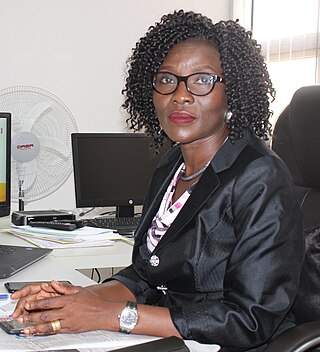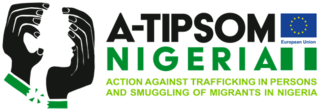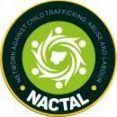
Trafficking of children is a form of human trafficking and is defined by the United Nations as the "recruitment, transportation, harboring, and/or receipt" kidnapping of a child for the purpose of slavery, forced labour, and exploitation. This definition is substantially wider than the same document's definition of "trafficking in persons". Children may also be trafficked for adoption. Not all adoption is a form of human trafficking, but illegal adoption is. Illegal adoptions violate multiple child rights norms and principles, including the best interests of the child, the principle of subsidiarity and the prohibition of improper financial gain.
According to the United States Department of State, "Thailand is a source, destination, and transit country for men, women, and children subjected to forced labour and sex trafficking." Thailand's relative prosperity attracts migrants from neighboring countries who flee conditions of poverty and, in the case of Burma, military repression. Significant illegal migration to Thailand presents traffickers with opportunities to coerce or defraud undocumented migrants into involuntary servitude or sexual exploitation. Police who investigated reaching high-profile authorities also received death threats in 2015.

Human trafficking is the trade of humans for the purpose of forced labour, sexual slavery, or commercial sexual exploitation.

Human trafficking in Australia is illegal under Divisions 270 and 271 of the Criminal Code (Cth). In September 2005, Australia ratified the Protocol to Prevent, Suppress and Punish Trafficking in Persons, especially Women and Children, which supplemented the United Nations Convention against Transnational Organized Crime. Amendments to the Criminal Code were made in 2005 to implement the Protocol.
The United Nations Global Initiative to Fight Human Trafficking (UN.GIFT) is a multi-stakeholder initiative providing global access to expertise, knowledge and innovative partnerships to combat human trafficking.
Nigeria is a source, transit, and destination country for women and children subjected to trafficking in persons including forced labour and forced prostitution. The U.S. State Department's Office to Monitor and Combat Trafficking in Persons placed the country in "Tier 2 Watchlist" in 2017. Trafficked people, particularly women and children, are recruited from within and outside the country's borders – for involuntary domestic servitude, sexual exploitation, street hawking, domestic servitude, mining, begging etc. Some are taken from Nigeria to other West and Central African countries, primarily Gabon, Cameroon, Ghana, Chad, Benin, Togo, Niger, Burkina Faso, and the Gambia, for the same purposes. Children from other West African states like Benin, Togo, and Ghana – where Economic Community of West African States (ECOWAS) rules allow for easy entry – are also forced to work in Nigeria, and some are subjected to hazardous jobs in Nigeria's granite mines. Europe, especially Italy and Russia, the Middle East and North Africa, are prime destinations for forced prostitution. Nigerians accounted for 21% of the 181,000 migrants that arrived in Italy through the Mediterranean in 2016 and about 21,000 Nigerian women and girls have been trafficked to Italy since 2015.
Human trafficking in Brazil is an ongoing problem. Brazil is a source country for men, women, girls, and boys subjected to human trafficking, specifically forced prostitution within the country and abroad, as well as a source country for men and boys in forced labor within the country. The United States Department of Homeland Security, describes human trafficking as "the use of force, fraud, or coercion to obtain some type of labor or commercial sex act."
Djibouti is a transit and, to a lesser extent, a source and destination country for men, women, and children who are subjected to trafficking in people, specifically conditions of forced labor and forced prostitution. There is little verifiable data on the human trafficking situation in Djibouti. An estimated 150 000 voluntary economic migrants from Ethiopia and Somalia passed illegally through Djibouti en route to Yemen and other locations in the Middle East in 2022; among this group, a small number of women and girls may fall victim to involuntary domestic servitude or forced commercial sexual exploitation after reaching Djibouti City or the Ethiopia-Djibouti trucking corridor. An unknown number of migrants – men, women, and children – are subjected to conditions of forced labor and forced prostitution after reaching Yemen and other destinations in the Middle East. Djibouti's large refugee population – consisting of Somalis, Ethiopians, and Eritreans – as well as foreign street children remain vulnerable to various forms of exploitation within the country, including human trafficking. Older street children reportedly act, at times, as pimps for younger children. A small number of girls from impoverished Djiboutian families may engage in prostitution with the encouragement of family members or other people in prostitution. Members of foreign militaries stationed in Djibouti contribute to the demand for women and girls in prostitution, including trafficking victims.
Devatop Centre for Africa Development is a youth-led nonprofit organization with aimed towards fighting and combating human trafficking, gender-based violence, child abuse, providing educational materials and academical support to vulnerable children, and empowering women and youth. The organization has been in the forefront of combating human trafficking and executing educational projects in Nigeria. It is registered with the Cooperate Affairs Commission Nigeria and since its establishment it has impacted over a million people through training, sensitization, assistance, donations and media.

Beatrice Jedy-Agba is a Nigerian lawyer and anti-human trafficking advocate. She is the first Nigerian to be honored by the U.S. Department of State with the Trafficking in Persons Heroes Award 2014. She was Director-General of National Agency for Prohibition of Trafficking in Persons (NAPTIP) between 2011 and 2016.
Women Trafficking and Child Labour Eradication Foundation (WOTCLEF) is an anti-human trafficking organization that attempts to stop human trafficking and child labour in Nigeria. WOTCLEF's areas of focus are human trafficking, child labour, abuse of the rights of women and children and HIV/AIDS. The organization played a role in establishing the National Agency for the Prohibition of Trafficking In Persons (NAPTIP) and the Network of Civil Society Organization Against Child Trafficking, Abuse and Labour (NACTAL).
The National Agency for the Prohibition of Trafficking in Persons (NAPTIP) is a law enforcement agency of the federal government of Nigeria. It was established in July, 2003 to combat human trafficking and other similar human rights violations.
Julie Okah-Donli is a Nigerian lawyer, chartered secretary and administrator, who served as the Director General of the National Agency for the Prohibition of Trafficking in Persons (NAPTIP), an agency established by the Federal Government of Nigeria in 2003 to tackle human trafficking and other related matters. She is the founder of the Julie Donli Kidney Foundation, an NGO that supports people with kidney disease and also mother of the musician, Lady Donli.
The Edo State Task Force Against Human Trafficking (ETAHT) is a Nigerian task force established by the Edo State Government to tackle human trafficking and irregular migration in the state, as well as the stigma that comes with it, State Task Force against human trafficking, is currently replicated in a host of southern states such as Ondo, Delta, Oyo, Lagos, Enugu, Ekiti States, etc. Prof. Yinka Omorogbe the Attorney-General and Commissioner for Justice, Edo State, is also the chairman of the task force. In the year 2017, Mr Godwin Obaseki inaugurated the state task force on anti-human trafficking. The members of the task force were inaugurated at the Government House in Benin City, the state capital. The Edo Task Force Against Human Trafficking is said to have received about 5,619 returnees from Libya en-route Europe from 2017 till date.

Action Against Trafficking in Persons and Smuggling of Migrants in Nigeria is an 11th European Development Fund project which is implemented in Nigeria by the International and Ibero-American Foundation for Administration and Public Policies (FIIAPP).
Idia Renaissance is a non governmental civil society organization based in Edo State, Nigeria. The organization organize activities around human trafficking, including reception of victims of human trafficking. Idia Renaissance was founded by Mrs. Eki Igbinedion, wife of Chief Lucky Igbinedion, a former governor of Edo State. In 2021, Idia Renaissance partnered with the United Nations High Commissioner for Refugees (UNHCR) to create awareness on human trafficking and sexual exploitation of women girls.
The rate of Human Trafficking in Edo State is alarming in this region of Nigeria. Located in Nigeria's Southern region, Edo State accounts for the highest proportion of irregular migrants in Nigeria. Young girls in Edo state are enticed with false promises to leave Nigeria and travel abroad for a better life, by the traffickers. The traffickers in this state also use manipulation, diabolical oath and debt bondage to control their victims and force them into slavery, forced labour, sex trafficking, and organ sales.
The 2015 Trafficking in Persons (Prohibition) Enforcement and Administration Act is an act which was initially passed in 2003 and amended in 2005 and 2015 by the Federal Government of Nigeria. The act was established to provide welfare and support for trafficked persons while also announcing penalties for offenses related to human trafficking in Nigeria. The act led to the establishment of the National Agency for the Prohibition of Trafficking in Persons (NAPTIP).
Sex trafficking in Nigeria is a form of human trafficking which involves reproductive slavery or commercial sexual exploitation Nigeria. This involves the exploitation and movement of people from one location to the other through coercsion, deception or forcibly to exploit them sexually for financial and sexual benefits.
The Lagos State Task Force Against Human Trafficking is a Nigerian task force established by the Lagos State Government to tackle human trafficking and irregular migration. On September 8, 2020, the Executive Governor of Lagos State, Babajide Sanwo-Olu, inaugurated the state task force on human trafficking at the Government house, with the overall objective of coordinating a multi-sectoral response to prevent human trafficking, provide access to justice for victims of trafficking, prosecute traffickers and enhance the process of successfully restoring survivors to a state of physical, psycho-social, vocational and economic well-being. This task force is currently being replicated in other southwestern states of Nigeria.



